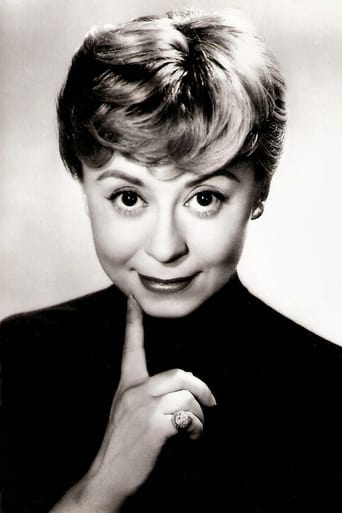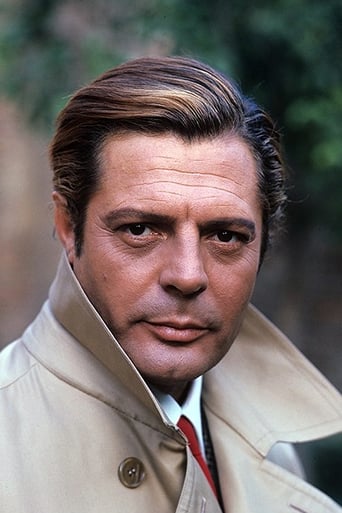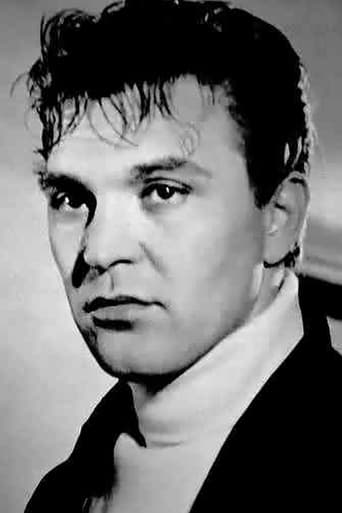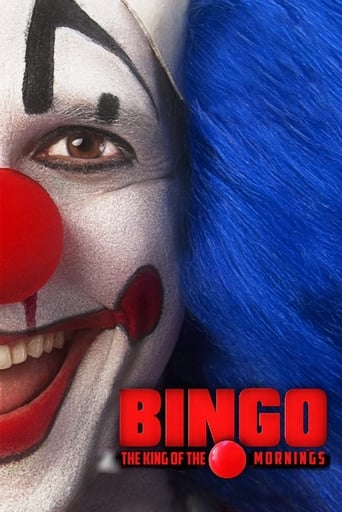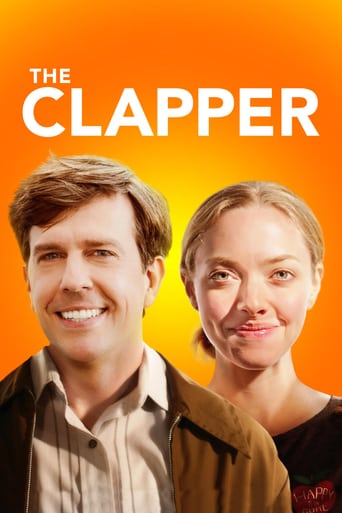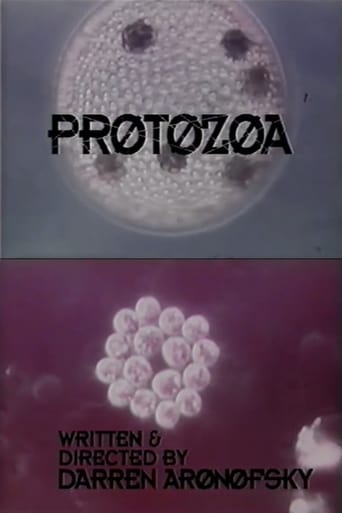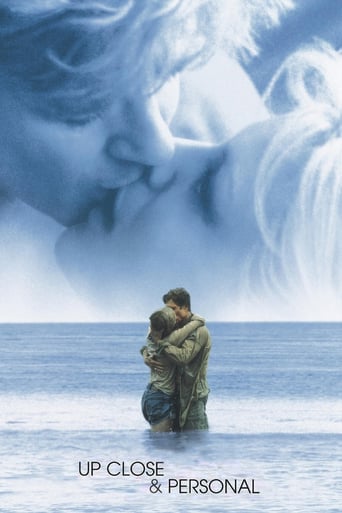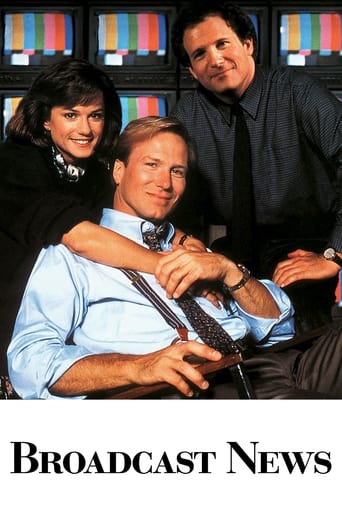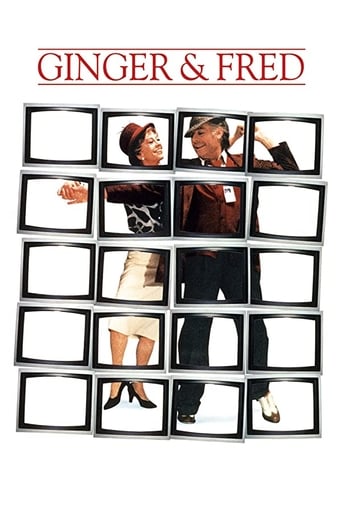
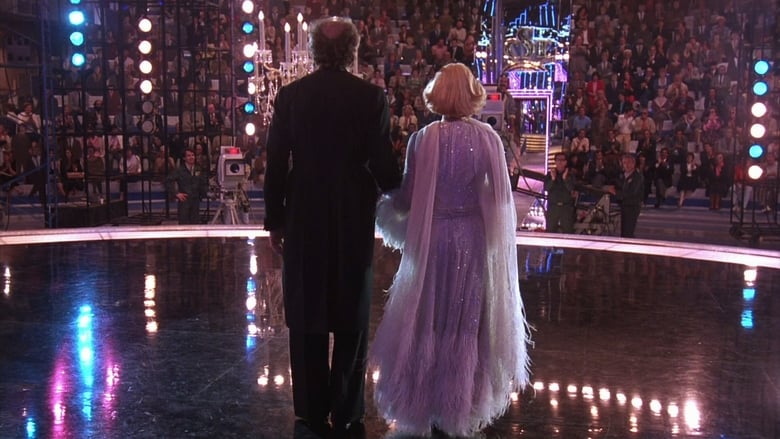
Ginger and Fred (1986)
Amelia and Pippo are reunited after several decades to perform their old music-hall act, imitating Fred Astaire and Ginger Rogers, on a TV variety show.
Watch Trailer
Cast
Similar titles
Reviews
Strong and Moving!
Great movie! If you want to be entertained and have a few good laughs, see this movie. The music is also very good,
what a terribly boring film. I'm sorry but this is absolutely not deserving of best picture and will be forgotten quickly. Entertaining and engaging cinema? No. Nothing performances with flat faces and mistaking silence for subtlety.
This is one of the best movies I’ve seen in a very long time. You have to go and see this on the big screen.
The later, nostalgic Fellini is always worth another look. How I want to like this more, a touching last adventure, albeit too late, that revives the old glories, ties up old emotions - a last irresistible chance to live. There's genius in the choice of subject: a couple of old dancing stars (Fellini favourites Mastroianni and Masina) have been invited to recreate their old act on a manic TV show. They prepare themselves physically and emotionally for this reunion, the last chance to tread the boards and feel the glory. This is Fellini - and his stars - well into old age, poised on the edge of oblivion, having got used, presumably, to irrelevancy, and now able to reflect wistfully on it all - even able to say a kind of goodbye. The homage to Astaire and Rogers is also a homage to cinema, and the idea of showing those old values displaced in the new tacky world of television is a fine ruse.Ginger (Masina) is immediately lost in this mad new world exactly as if she has stepped out of an old film. Outrageous advertising, rubbish piled in the streets, gangs of youths on motorbikes, the uncertainty of where they are being taken and what will happen to them - all nicely encapsulate the disorientation. The unstoppable madness of real life, it seems, is more Felliniesque than Fellini. When Mastroianni finally appears - after some anticipation - he is a sorry wreck of his former self. This is quite touching. They go over their old routine, feel the nerves once again, meet some old friends, get that sense of achievement for the last time.But what a hash Fellini makes of it, what a laborious rendering. It's a raucous gabble - treacle-think with yattering people who are really more irritating than cute. Yes, that's the theme: gentle nostalgia swamped by the manic, garish, loud, unstoppable modern world. But still, there had to be a subtler way of presenting an irritating world than irritating the audience. And let's be honest, this is his usual style. As usual, there are too many words in the script; there is barely a moment's rest from the breathless dialogue - most of it not as funny or quaint as it tries to be. It's never the words that raise a smile, but the silent moments that bring most out of the characters. If only Fellini had realised that.The inventiveness is desperate, and is only sporadically funny, nostalgic, or touching. Largely it seems like an excuse to parade a variety of freakish or eccentric characters, cramming in far too many of them. Group scenes are invariably chaotic and lack the precision and clarity of the old days, when black and white forced a more precise delineation of scene and character. What it lacks in crispness it tries to makes up for in sheer sensory experience, but it feels slapdash, and that feel is compounded, as always, by that terrible Cinecitta dubbing. This is not nearly the worst example, but it does appear slapped on at times like a veneer. Quite clearly the words they are mouthing are not the ones you hear; it is maddening and sometimes difficult to see who is talking from a distance, and, more importantly, it robs the serious characters of sincerity, and makes the flippant characters into cartoons. Some might take it as an element of style, a deliberately imposed artificiality implying that the characters are always bigger than their words - that's being overly indulgent.But it's hard to be too harsh. On the plus side, there is a fine arc to this film; it grows in meaning, matures, and finally blossoms into a delicate flower of nostalgia. There's great music, and the two stars, who are, you can tell, by nature wistful and gentle - that's enough. And I'm a big fan of railway station endings, having spent so long - whole nights often enough - enduring the loneliness of the long-distance traveller, even in Roma Termini the year this film was made. Everyone is benign - even the murderous mafia boss in handcuffs. Everyone has a beneficial role to play in society, a performance to make, no matter how freakish they are, how out of touch or out of date. Sure, the present makes a mockery of the past, but no more than the past, with more justification, makes a mockery of the present.I'm surprised I like Fellini. He's never critical of anything, no matter how stupid or weird, whereas I'm critical of everything, especially things human. He has no interest in the natural world, only in people, whereas I see everything, especially the human world, in the context of a bigger picture- nature - in which humans are just a few billion scurrying ants. So Fellini represents all the stuff that I have lost, or never gained - the side of me that got concreted over somewhere along the way; he is the antidote to misanthropy and ill-feeling of any sort, to all the misery that society, as a necessary by-product, tips upon itself; he is the little man getting his own back without bitterness. In short, he's good for the soul. Just a pity the producer or other person of influence didn't rein in much of the extraneous garishness (including the smutty jokes) here.People love the humanity in this film and will be prepared to overlook the directorial misjudgements. Fine. It must be nice to be so generous, but, in all honesty, from a filmcraft point of view, this could have been much better.
I didn't like this Fellini as much as maybe I should have, but the problem with it is, it's just too unfocused. And too long also, as a direct result of that. Now, I don't pretend to be able to see underwater--as the saying goes—but here good old Federico works his film as if he didn't have much time left on this Earth and he should hurry up putting into celluloid each theme, character, plot, situation, concept, image, he had still left in his bag: aging, bad TV, memory & memory loss, nostalgia, relationships, media trends, loneliness, terrorism, social revolt, crime, etc. I don't know what were the circumstances in his life at the time when he conceived G&F, but I wouldn't be surprised if something happened then that brought to his undivided attention and in the strongest possible terms the possibility of his own death; the fear that any day he could be gone and that he has to work fast and furious on what he had still to do while still in this world—and that he decided to include it all in this movie. See for ex. as in Intervista, shot a year later, there isn't one single mention of death, by him or by others--the film strictly focusing on the making of a film--while here Mastroiani's Fred/Pippo acts all along as if feeling he's already going down the final stretch; he even refers to it during the bus trip, when talking about things looking at him as if saying Farewell.The story revolves around a mature couple--I think in their 60s--who some 30 years ago had a dancing number imitating the then world famous Fred Astaire & Ginger Rogers. They have been separated since then and have been reunited now by a TV station for a variety program for Christmas, which will include all kinds of bizarre characters as guests: a senile Admiral, a flamenco troupe made of dwarfs, a couple who record voices of the dead, a woman who was paid not to watch TV for a month, etc. All that is mildly interesting but no much different from the weird characters and things that had populated many, if not most, of Fellini movies. Precious film time is spent, rather wasted, delving in the personal stories, comments of all these people while G & F, specially her, are let to their own devices in the midst of the crowd, their roles and relevance diluted in that human mass, those props and those TV sets--which is compounded by regular interruptions by commercials with scantily clad women peddling every possible consumer product. This way both leads are turned, in many instances, into mere witnesses, commentators, of the ongoing action, while precious little time is given to relevant information about what went on, or wrong, in their respective lives during those years they were performing and after that—except that Ginger/Amelia married and that Fred/Pippo had a prolonged visit to some institution, so distraught he was after they broke up. We feel for them, sure, specially because we can feel the passage of time in the way they communicate; in their arduous attempts to repeat the feats that their young bodies allowed them at the time—as we did also in Intervista with Mastroiani, also, and Anita Ekberg—but for the same reason this film should have focused a lot more on them rather than diluting itself in so many different things at the same time. I know Fellini was feeling strong urges to throw jabs at TV at the time, as he did with the Indians carrying TV antennas as spears in Intervista, but the film time spent in his settling of that particular score means precious time is spent that could have been better used on G & F, in their life stories.What makes that waste even worse is the fact that the acting is superb by both. The best scenes are in fact those where they are together—as when during the interruption of their dance, during their act, or when Pippo explains to somebody the origins of tapping dance—and that should have been obvious also for the director. All he had to do was to focus on them, their interaction, to have another classic, but he let it go. And the result is a rather lame Fellini, with his trademark exuberant colors, opulent cinematography, his usual cast of weirdos, yes, but one that keeps losing his soulful, nostalgic, way all along the road. I know G&F is prophetic in the way it predicts the evolution, or deterioration, of TV but who cares. He could have done another flick about that. About weirdos, Rome in Christmas, etc.Speaking of Woody Allen, who is lampooned in this movie, one thing he has in common with Fellini--and Kafka, I'd say—is that both are at their best when forgetting themselves; when they forget about their own personal phobias, insecurities, fantasies, egos, and do what they do best: lucid, uncompromising, social and psychological comment. Fellini referred to Intervista as a narcissistic film and he was wrong. That was the farthest to a narcissistic film he ever did. G & F is narcissistic--one where he sacrificed a superb story , wasted the talent of two brilliant actors, because he considered more important to settle his own scores with TV. That's the saddest thing about this movie. 6/10.
This is a very enjoyable film for fans of Italian cinema, as two great actors who made reputations for themselves in earlier Fellini films return late in their careers for a very nostalgic romp. Giulietta Masina (wife of Federico Fellini) and Marcello Mastroianni play Ginger and Fred--a dance team that made a name for themselves imitating the dancing style of Ginger Rogers and Fred Astaire. The act had broken up more than three decades earlier, but they both agreed to be reunited for a TV program. Now, much older and not having seen each other for many years, they meet and renew old acquaintances.All the dialog and scenes between the two leads were very sweet and charming. Despite her age, Ms. Masina in particular looked great and was amazingly light on her feet, while her partner was obviously too old and rusty but he felt compelled to be there. Unfortunately, while their scenes together were great, it took until almost the middle of the film until they were reunited. In the meantime, tons of Felliniesque touches were dumped onto the screen and served to either delight Fellini's die-hard fans who want this or alienate people like me who felt they totally obscured the story. For example, on this variety show are a troop of dancing midgets (VERY Fellini-like), a transsexual, a kidnap victim with missing digits, an againg admiral, countless bad celebrity impersonators and lots of garish little touches that made it obvious that Fellini was NOT a fan of television--like a film made by kids who have severe ADHD since it has practically EVERYTHING. Additionally, throughout the film, lots of bizarre touches were inserted such as an irrelevant biker scene and a short clip at the beginning of the film of a billboard on which a sausage is penetrating a woman (look quickly--it's there).I guess I am just much more of a romantic. I really wanted to see more Masina and Mastroianni. Their interplay was excellent and charming and the dance routine was amazingly sweet and touching. I guess never having been a huge fan of Fellini's more surreal and indulgent films, the excesses and distractions of this film made it tough to rate it any higher.
This could easily have turned out to be a Turkey Trot but Fellini manages to avoid producing a turkey largely via the two central performances. Mastroianni doesn't appear until fully thirty five minutes in, unlike Signora Fellini who is present from the start. She IS a fine actress, that is beyond dispute but in those first thirty five minutes Fellini indulges his penchant for the grotesquerie of life by introducing yet another gallery of freaks. About halfway in we get to the television studio which allows Fellini to start taking swipes at the medium but the problem is they're the same kind of swipes that even low-budget British films were taking in the early fifties - or thirty years earlier whichever is the greater. Of course what we've come to see is how well or badly the principals xerox the eponymous characters and it is a tribute to Astaire and Rogers that almost half a century after they were working together their names are so emotive that virtually everyone on the planet knows who is meant by Ginger and Fred. Neither of the principals has ever, to my knowledge, claimed to be a dancer and even in their prime they could never have trodden the same boards as the real thing but those of us who love Astaire will relish not the footwork of Mastroianni but the small, keenly observed Gestures of Astaire, the brushing of the hat, the discarding of a cigarette, the quizzical looks, etc all testimony of what must have been hours if not days of watching old Astaire movies. Rogers, of course, was never much of a dancer and without Astaire would have fallen by the wayside so her dancing is not so important. Over and above all this we have to factor in the sheer CHARM and professionalism of the principals which lend a sort of gravitas-lite to the bittersweet elements in the story. A minor delight.
